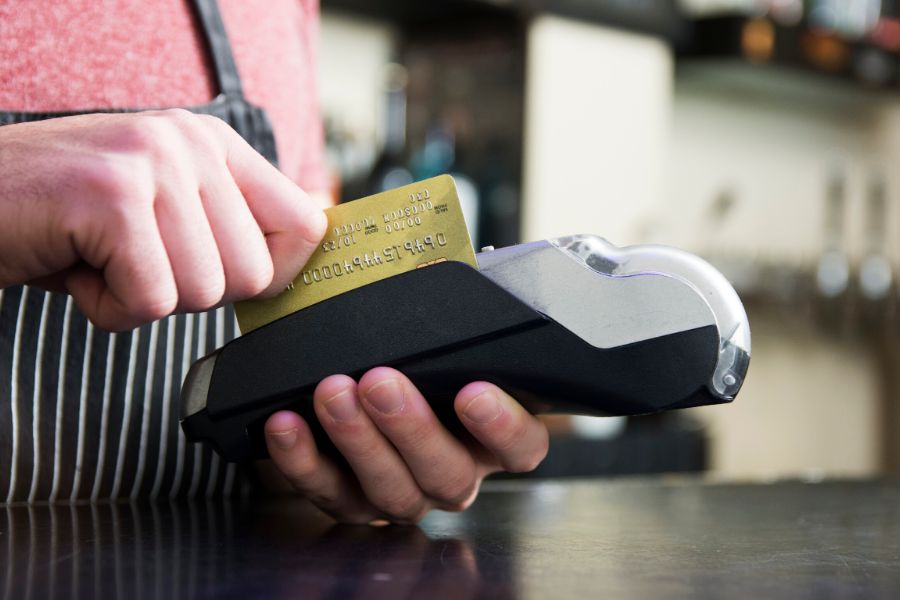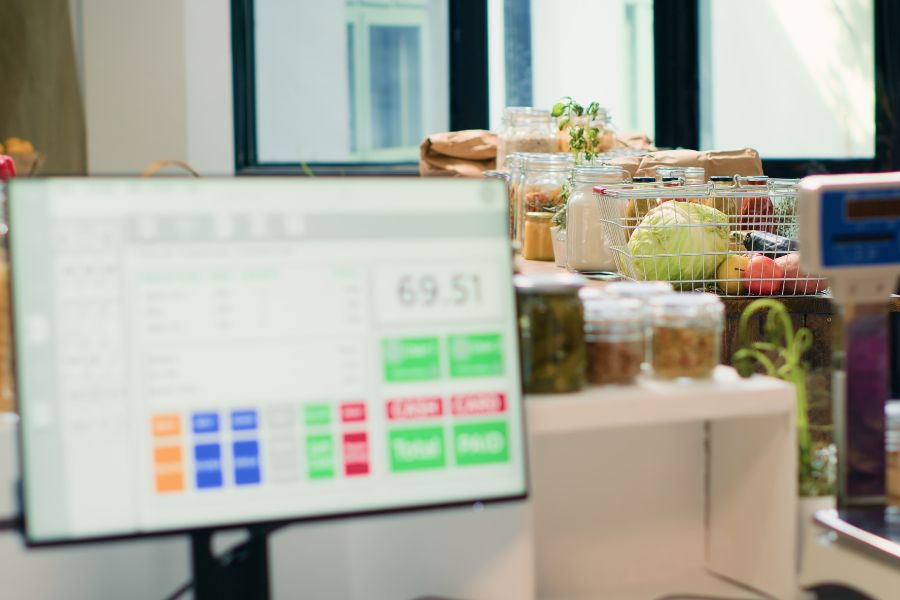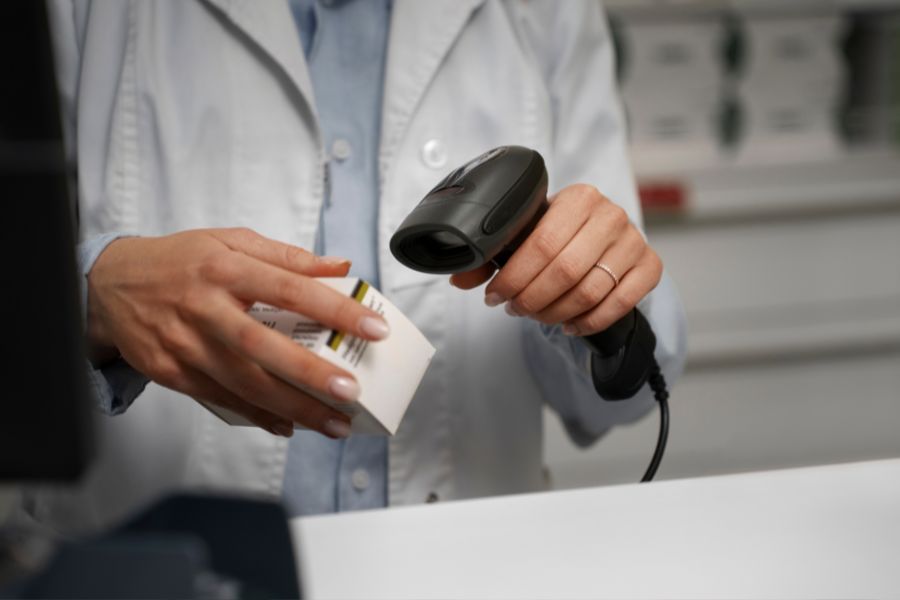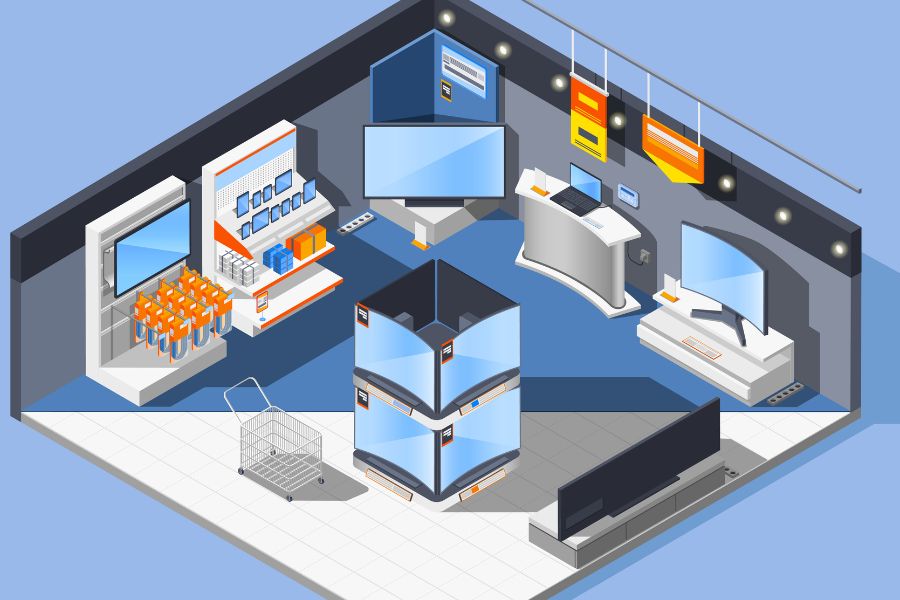Technology has reinvented the retail industry. Online shopping, delivery, or curbside pickups are becoming more popular. In fact, 73% of customers use more than one channel to shop. To keep up with the trend, retail businesses have come to technology to speed up transactions and offer various services to customers.
This article will go through one of the 2 most used retail technologies: POS and ERP. We will discuss how POS connect your ERP with eCommerce.
Firstly, what are POS and ERP?
POS is short for Point of Sale, which refers to the moment when a transaction is made between a seller and a buyer. A POS system typically helps store owners to handle business operations that relate to such transactions, ranging from order, inventory control to sales reports and employee management.
Meanwhile, ERP is an Enterprise Resource Planning system. Businesses use this software to process their daily operations, such as accounting, procurement, supply chain management, etc. Some complex ERPs also include budget planning or financial reports.
These 2 systems have essential functions that help business owners to manage their stores. While ERP handles a wide range of business functions, POS systems specialize in selling activities. The question for today is: When it comes to eCommerce, how exactly can POS support your ERP?
How POS can connect ERP with eCommerce
Avoid manual data entry
Connecting your POS with ERP can eliminate the need to enter data manually into different systems. If your systems do not synchronize or take too much time to enter data, many problems can arise. You may not be able to keep track of orders and your inventory, as what is displayed in the system is not updated. In the long run, disparities can add up and create bigger problems. Moreover, duplicating your efforts to enter the same information can be time-consuming, shifting you away from what really needs to be focused on.
With a POS integrated with eCommerce, data between your eCommerce store and ERP can be synchronized. As a result, you can manage your store from one system and view a complete picture of your transactions. It will reduce the risk of errors and increase productivity.
Handle multiple warehouses and stores
A POS system can also support your ERP to handle multiple warehouses and locations that belong to your eCommerce store. You can have real-time inventory, add and move products between stores, or get alerts about low-stock products. As a store owner, you may not want to lose customers just because some products are out of stock in some locations. A POS system can provide reports on product selling trends (what are the best-sellers, or what continue to stay on shelves), in addition to the financial reports created by ERP.
Some advanced POS systems also allow users to create orders with products that are not available in stock, such as ConnectPOS. In this way, POS can bring your ERP closer to the activities in eCommerce – this is a big plus for integration!
Create seamless omnichannel experiences
Customers are now changing their shopping behaviors. Research shows that up to 87% of consumers start their shopping journey with digital platforms. Omnichannel shopping is inevitably highly favorable. However, a traditional ERP system can hardly support businesses to create a seamless shopping experience.
This is when POS plays an important role – it does not only connect your ERP with eCommerce but also upgrades your shop to a higher level. Omnichannel POS can allow customers to buy online and pick up in-store. The continuity of shopping between online and offline channels is a big advantage of integrating a POS with your ERP system.
Conclusion
All in all, integrating POS with an ERP system can bring many benefits to your eCommerce store. If you are wondering which POS you should consider, try ConnectPOS. It is available to integrate with NetSuite with excellent omnichannel features. Contact us if you are interested!
ConnectPOS is a all-in-one point of sale solution tailored to meet your eCommerce POS needs, streamline business operations, boost sales, and enhance customer experience in diverse industries. We offer custom POS with features, pricing, and plans to suit your unique business requirements.




